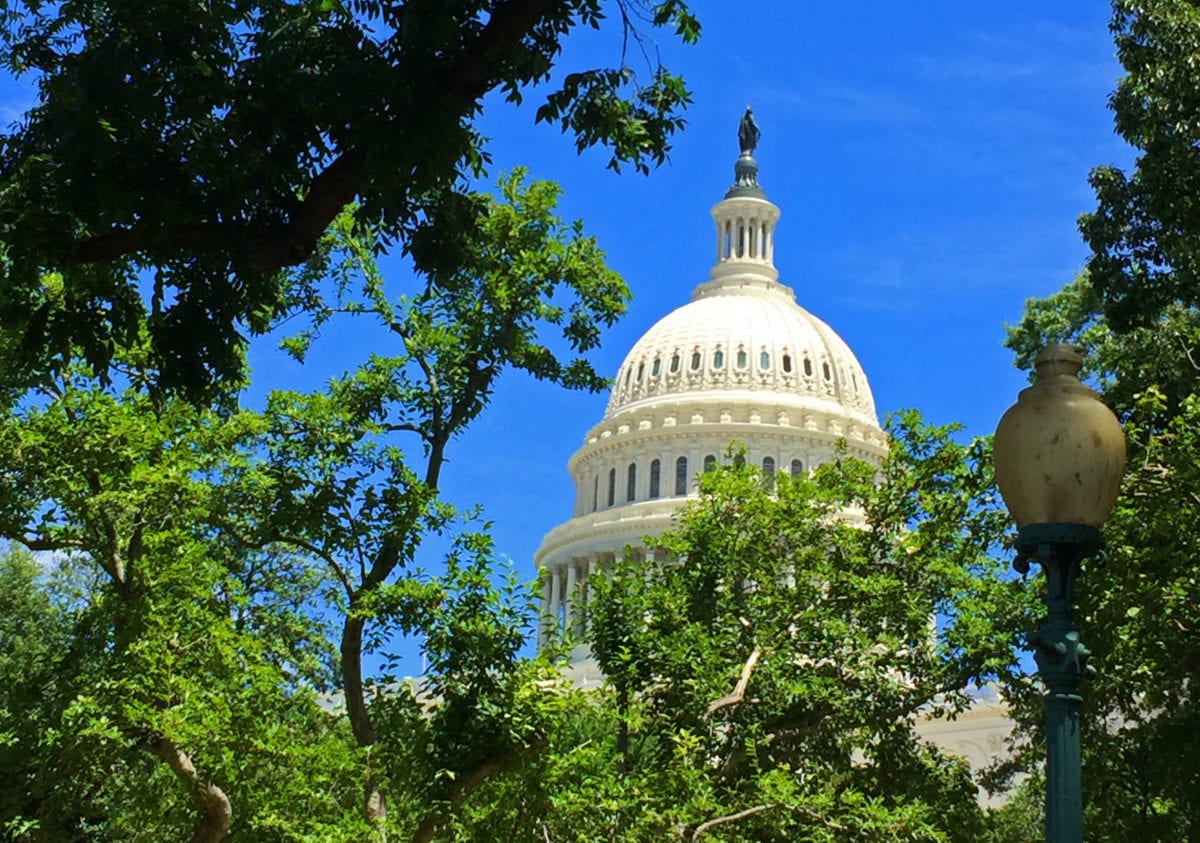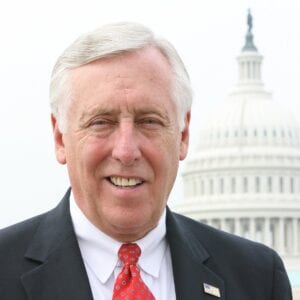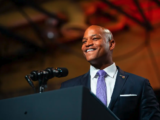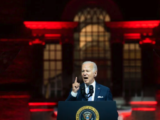
A unique view of the U.S. Capitol building in Washington, D.C., July 7, 2018: Glynn Wilson
By Steny H. Hoyer –
U.S. House Majority Leader –
Problems encountered by voters in recent primary elections continue to present a warning to all Americans ahead of our general election in November.

Steny Hoyer
Many voters — particularly minority voters — have waited hours at their polling locations or were turned away outright. Thousands who requested absentee ballots did not receive them. Those who could not vote by mail had difficulty casting their ballots in a way that is safe and secure. Unfortunately, these problems were entirely predictable.
In May, I warned that the coronavirus pandemic would require states to begin immediately adopting new and safer voting practices to account for social and physical distancing requirements and make absentee voting available to all voters. If not, they would risk exactly the kind of difficulties we had already seen in Wisconsin and other states. Later, the primary debacle in Georgia proved that these lessons were ignored.
Last week, however, in Kentucky we saw the Democratic governor and Republican secretary of state successfully team up to allow no-excuse absentee voting, opportunities for early voting, and higher-capacity polling locations. As a result, Kentucky voters broke records in absentee balloting, and even with fewer in-person polling places open, lines were far shorter than predicted, as most voters participated through the mail. Though not perfect, Kentucky’s primary shows us how bipartisanship and commonsense actions can lead to smoother elections while confronting the challenges of COVID-19.
Having fought hard over the years for voting rights and to ensure that every eligible voter can cast a ballot and have it counted accurately, I worry about whether our nation can meet this test in every state.
After the weaknesses of our voting systems were exposed in the disputed 2000 election in Florida, I wrote the Help America Vote Act to ensure that such a disaster would not be repeated. Now, Congress ought to act, in concert with states, to make certain that every eligible voter will be able to vote this November — without facing hours-long waits, risk from COVID-19, or outright voter disenfranchisement.
First, we ought to enact Rep. Zoe Lofgren’s bill, which the House included in last month’s Heroes Act, to permit every voter in America to request an absentee ballot without excuse, along with a prepaid and self-sealing envelope for its safe return. In addition, her legislation would ban unfair practices often used to purge legitimate ballots, and it would provide those whose eligibility are questioned with a chance to correct missing information in their voter files. This would ensure maximum access to mail-in voting nationwide and prevent legitimate ballots from being thrown out.
We now have solid evidence that mail-in ballots make an enormous difference in enabling Americans to vote safely during this pandemic. In Idaho and Montana, which held their primaries on June 2, all voters cast their ballots through the mail and overall voter turnout rose significantly.
In Maryland, we saw mail-in ballots rise to 97% of all votes cast, and each county maintained in-person voting and ballot drop-off locations for those needing them. Governors and state legislators in these and several other states, including Kentucky, moved swiftly to adopt voting procedures that facilitated mail-in voting and safer in-person voting.
Second, for those who still choose to vote in person, states ought to expand early voting as much as possible. We must avoid situations like we saw in Georgia and Wisconsin, where lines stretched for hundreds of feet and around city blocks, proving difficult to maintain social distancing, with many forced to wait hours to vote, others being turned away, and polling locations lacking basic supplies like power strips and enough provisional ballots. It is up to governors, legislatures and secretaries of state to prevent that from happening.
Once inside a polling place, safety must be of paramount concern. That’s why it is critical for states to adopt practices that protect both voters and poll workers, such as ensuring that there are a sufficient number of check-in stations, voting machines and ballot drop-off boxes and erecting protective screens and hand-sanitizer dispensers.
At the same time, the higher risk of COVID-19 to older Americans means that now is the moment for more young people to step up as poll workers. For students and young people looking for ways to effect positive change in their communities, signing up to be a poll worker is a vital way that they can contribute.
In Congress, I will work to take action to ensure that Americans can vote safely by mail in November. This is a core civil rights issue that affects the ability of millions of our fellow Americans to have their voices heard. There is no excuse not to act now to secure our elections in November. Congress and every state must act to ensure that our country’s democracy does not become this pandemic’s next victim.













